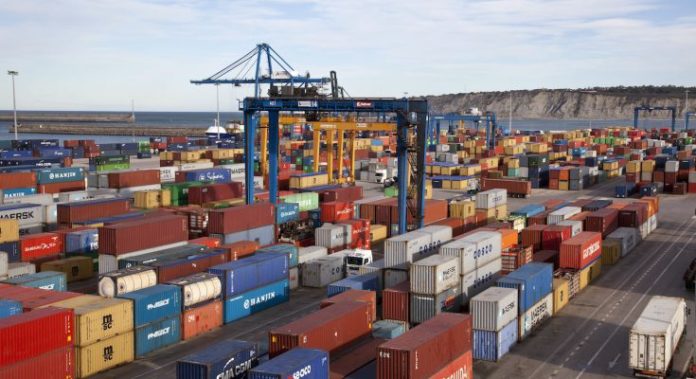Unending Maximization of Revenue Generation from Ports and Consequences for National Economy

NIGERIAN PORTS
By Francis Ugwoke
The current effort of the federal government at maximizing revenue generation from the ports industry leaves much to be desired. The government had given the Nigeria Customs Service a revenue target of N6.584 trillion this year. But as at June, the Senate Committee on Customs under the chairmanship of Senator Isah Jibrin, directed the Customs to do more than just N6.584tn and double the N5.079 trillion revenue figure for last year. Jibrin said during the budget defence in June this year that the Service having surpassed its revenue target for 2024 should be able to double what it realized last year this year. The Committee gave the Customs a revenue target of N10trillion for 2025. In a bid to meet the expectations of the government, the Service appears to have set out to introduce some measures that are seen by observers as geared towards generating more revenue. But it would appear that this is being done without considering the general economic consequences on the people.
In July, the Customs Service had hinted of its plan to reintroduce a single 4% Free on Board (FOB) charge to replace the existing range of charges with the explanation that this will eliminate the 1percent 1% Comprehensive Import Supervision Scheme (CISS) charge and the 7% collection fee.
Comptroller General of the Service, Bashir Adewale Adeniyi, had at a townhall meeting said, “Once the 4% FOB takes effect, the 1% Comprehensive Import Supervision Scheme (CISS) will cease automatically. In addition, the 7% cost of collection currently charged will also be completely removed.
“Under the new Act, the 4% FOB is paid upfront—and that’s it. Thereafter, 100% of the revenue generated by Customs will go into the Federation Account. It’s a win-win for everyone.”
The Service, it was gathered, has started the implementation of the 4% Free On Board (FOB) levy effective August 4. The Service has also said it plans to review the licencing fees for customs agents from January 2026. This was announced by the National Public Relations Officer of the Service, Abdullahi Maiwada. He explained that this is in line with Sections 103 to 107 of the Nigeria Customs Service Act, 2023, and part of ongoing reforms to strengthen professionalism and regulatory efficiency among customs agents. However, observers believe that the issue is not just in the review, but the new fee that is being planned. Freight forwarders currently pay N215, 000 licence fee. They were told that it will go up from January, as it is no longer realistic. Unconfirmed sources said there are plans to raise the licence fee to between N10million and N50m.
While, the measures being churned out are indeed putting enough revenue in the purse of the government, yet, it is with a lot of pains and therefore, again with economic consequences. Stakeholders have described some of the measures as becoming too harsh for importers, customs agents and the general economy. On the licence fee, this is considered too high for most agents who hardly have businesses to do. There are insinuations that government is encouraging foreign interest to take over the practices of freight forwarding in the seaports with the high licence fees being planned. To observers, there is no doubt that government is indeed happy as more revenue continues to grow, but the fact remains that the final consumers are the ones suffering the economic measures. This is for obvious reasons. As the importers are compelled to pay high duties, they struggle to look for ways to make profits and remain in business. As they spend about three times in import duties and other logistics, including corruption involving security agencies at the ports, they must add these to the cost of the goods which is why prices of commodities are higher in the markets. This is issue for all importers, from those of finished goods to those who import raw materials for local production. This also leads to increased smuggling. This even explains why so much seizures are being recorded by the Customs with about ₦35.29bn recorded last year. There is no doubt that there could be those who may not have been discovered, who were able to bribe their way or somehow escaped. The nation has porous borders which the Customs alone can hardly police. In essence, government needs to take a second look at its rising taxes in the ports, and ease the high revenue targets and consequent trade taxes. It is surprising that the government appears not to understand the consequences of the increasing taxes in the ports on the general economy. This way, the government is indirectly making economic life more difficult for Nigerians, as importers after paying so much to import and clear their goods must also increase prices of trade goods to remain in business.
The current effort of the federal government at maximizing revenue generation from the ports industry leaves much to be desired. The government had given the Nigeria Customs Service a revenue target of N6.584 trillion this year. But as at June, the Senate Committee on Customs under the chairmanship of Senator Isah Jibrin, directed the Customs to do more than just N6.584tn and double the N5.079 trillion revenue figure for last year. Jibrin said during the budget defence in June this year that the Service having surpassed its revenue target for 2024 should be able to double what it realized last year this year. The Committee gave the Customs a revenue target of N10trillion for 2025. In a bid to meet the expectations of the government, the Service appears to have set out to introduce some measures that are seen by observers as geared towards generating more revenue. But it would appear that this is being done without considering the general economic consequences on the people.
In July, the Customs Service had hinted of its plan to reintroduce a single 4% Free on Board (FOB) charge to replace the existing range of charges with the explanation that this will eliminate the 1percent 1% Comprehensive Import Supervision Scheme (CISS) charge and the 7% collection fee.
Comptroller General of the Service, Bashir Adewale Adeniyi, had at a townhall meeting said, “Once the 4% FOB takes effect, the 1% Comprehensive Import Supervision Scheme (CISS) will cease automatically. In addition, the 7% cost of collection currently charged will also be completely removed.
“Under the new Act, the 4% FOB is paid upfront—and that’s it. Thereafter, 100% of the revenue generated by Customs will go into the Federation Account. It’s a win-win for everyone.”
The Service, it was gathered, has started the implementation of the 4% Free On Board (FOB) levy effective August 4. The Service has also said it plans to review the licencing fees for customs agents from January 2026. This was announced by the National Public Relations Officer of the Service, Abdullahi Maiwada. He explained that this is in line with Sections 103 to 107 of the Nigeria Customs Service Act, 2023, and part of ongoing reforms to strengthen professionalism and regulatory efficiency among customs agents. However, observers believe that the issue is not just in the review, but the new fee that is being planned. Freight forwarders currently pay N215, 000 licence fee. They were told that it will go up from January, as it is no longer realistic. Unconfirmed sources said there are plans to raise the licence fee to between N10million and N50m.
While, the measures being churned out are indeed putting enough revenue in the purse of the government, yet, it is with a lot of pains and therefore, again with economic consequences. Stakeholders have described some of the measures as becoming too harsh for importers, customs agents and the general economy. On the licence fee, this is considered too high for most agents who hardly have businesses to do. There are insinuations that government is encouraging foreign interest to take over the practices of freight forwarding in the seaports with the high licence fees being planned. To observers, there is no doubt that government is indeed happy as more revenue continues to grow, but the fact remains that the final consumers are the ones suffering the economic measures. This is for obvious reasons. As the importers are compelled to pay high duties, they struggle to look for ways to make profits and remain in business. As they spend about three times in import duties and other logistics, including corruption involving security agencies at the ports, they must add these to the cost of the goods which is why prices of commodities are higher in the markets. This is issue for all importers, from those of finished goods to those who import raw materials for local production. This also leads to increased smuggling. This even explains why so much seizures are being recorded by the Customs with about ₦35.29bn recorded last year. There is no doubt that there could be those who may not have been discovered, who were able to bribe their way or somehow escaped. The nation has porous borders which the Customs alone can hardly police. In essence, government needs to take a second look at its rising taxes in the ports, and ease the high revenue targets and consequent trade taxes. It is surprising that the government appears not to understand the consequences of the increasing taxes in the ports on the general economy. This way, the government is indirectly making economic life more difficult for Nigerians, as importers after paying so much to import and clear their goods must also increase prices of trade goods to remain in business.





